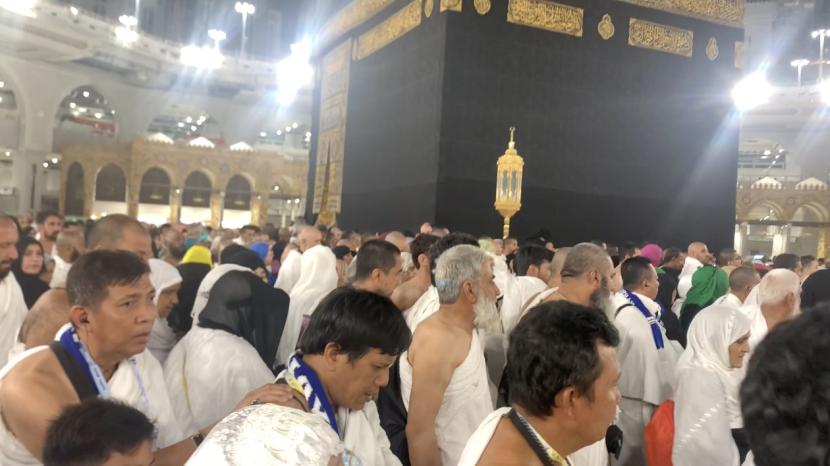REPUBLIKA.CO.ID, JAKARTA -- Member of Commission VIII of the Parliament of Indonesia Maman Imanul Haq appealed to the government and travel agencies to educate the public, especially Muslims, not to travel for Hajj without an official visa.
“I appeal to the government, as well as to Hajj and Umrah travel agencies to educate the public that no worshipers dare to enter other countries, especially to Saudi Arabia to perform Hajj services without a visa,” Maman said.
He said this while attending a virtual Dialetika Democracy discussion event on the theme “Anticipating the Rise of Hajj and Umrah Without Official Visas” at the Parliament Complex, Jakarta, on Thursday.
He reminded that there are some sanctions that will be imposed if people are reluctant to join the Hajj pilgrimage without an official visa. Maman said the Saudi Arabian government could deport worshippers and ban them from returning to the country for up to 10 years.
Next, Maman also said that worshippers with non-Hajj visas cannot necessarily qualify to perform wukuf worship in Arafah during the peak of Hajj because the Saudi Arabian Government tightened the rules during the peak of Hajj.
Finally, Maman called on the Ministry of Religious Affairs to crack down firmly on travel agents who have been found to be violating the rules by expelling pilgrims without official visas. “Travel agencies also have to be cracked down on because they are the ones who discourage them,” he said.
Earlier, the Ministry of Religious Affairs has confirmed that only Hajj specific visas can be used by prospective worshippers to perform the Hajj in Makkah, Saudi Arabia. “The Ministry reaffirms that only the Hajj visa can be used in the organization of Hajj 1445 Hijriah/2024 AD,” said Akhmad Fauzin, Head of the Public Relations, Data, and Information Bureau of the Ministry of Foreign Affairs of Indonesia.
Akhmad stressed that the use of Hajj visas has been regulated in Law No. 8 of 2019 on the Organization of Hajj and Umrah Worship (PIHU). “Article 18 of the PIHU Act provides that the Indonesian Hajj visa consists of Indonesian quota Hajj visa and Hajj mujamalah visa at the invitation of the Government of the Kingdom of Saudi Arabia,” he said.
He then explained that the quota of Hajj visas is divided into two, namely the regular Hajj of the government and the special Hajj held by the Special Hajj Worship Organizer or PIHK.
The issue of the Hajj visa has been in the public spotlight since it is known that about 100,000 WNI have gone to Umrah, but have not returned to their homeland. Some of them allegedly wanted to perform the illegal Hajj by using a pilgrimage visa instead of an official Hajj visa.


